#highest grossing superhero films
Text

Today In History
Samual L. Jackson is an amazing artist and the hardest working Hollywood actor in the business. He was born on December 21, 1948, in Washington, D.C.
Jackson is especially known for his work in action blockbusters and his films with directors Spike Lee (Do The Right Thing, and Jungle Fever) and Quentin Tarantino (Pulp Fiction, Django Unchained, and The Hateful Eight). He appeared in countless other films, including ‘Coming To America,’ ‘School Daze,’ ‘Mo’ Better Blues,’ ‘Juice,’ ‘A Time To Kill,’ ‘Goodfellas,’ ‘Eve’s Bayou,’ ‘True Romance,’ ‘Jurassic Park,’ ‘Star Wars,’ ‘Die Hard 3,’ ‘Marvel’ superhero franchises, and many other films.
In 2011, he was named the highest-grossing actor of all time with more than $7.2 billion in wealth.
Jackson has been outworking new and veteran actors, racking up more than 100 film credits, doing voiceover work, hosting and starring in Capital One commercials with the famous tagline: "What's in your wallet?" No role has been too big or too small for Jackson, who has become a mainstay in Hollywood's biggest blockbusters.
CARTER™️ Magazine
#carter magazine#carter#historyandhiphop365#wherehistoryandhiphopmeet#history#cartermagazine#today in history#staywoke#blackhistory#blackhistorymonth#samuel l jackson
84 notes
·
View notes
Text
After the climactic release of the historically successful Avengers: Endgame – the 22nd film in the Marvel Cinematic Universe, the penultimate release in their “Infinity Saga”, the culmination of 11 years of brand-building, the second-highest-grossing film of all time – Marvel decided what the world really needed was more Marvel.
Armed with classic Hollywood hubris – the misguided conviction that the public would never tire of what they were selling – Marvel Studios rolled television production into their main business model, with “Phase Four” delivering more television shows than movies. The effect was a flooding of the market and a dilution of the brand, not to mention the release of the worst MCU movie, Eternals.
Forcing narrative crossovers between television shows and movies had the adverse effect of turning the former into homework and the latter into ads for the former. This practice was an act of artistic self-sabotage, ruining what could’ve been Marvel’s most sublime film, Black Panther: Wakanda Forever, by burdening it with a host of tonally-off, studio-obligated B-stories crowbarred in to promote upcoming television titles.
After a run of disappointing films that weighed down once-fun franchises with po-faced gravity – Spider-Man: No Way Home, Doctor Strange in the Multiverse of Madness, Ant-Man and the Wasp: Quantumania, Guardians of the Galaxy Vol. 3 – and a slew of ordinary television shows – The Falcon and the Winter Soldier, Moon Knight, She-Hulk: Attorney at Law, Secret Invasion – we’ve officially reached a state of Marvel fatigue, with questions looming around the state of the superhero industrial complex.
It’s in this cultural moment that Loki, the acclaimed solo show for the titular character, arrives for a second season. It doesn’t just have to live up to an inspired first season but also has to push back on all the bad vibes, a difficult task given the heavy presence of Jonathan Majors, the breakout star who was arrested in March on domestic violence charges.The great charm of this season is that it cultivates the feeling that it could head anywhere and be anything. Loki doesn’t just explore free will as a theme, it actually feels as if it artistically possesses it.
The good news is that, whether or not it can be spun as state-of-Marvel narrative correction, season two is a worthy successor. Blessed by the fact its titular character, Tom Hiddleston’s charismatic God of Mischief, remains a slippery figure, Loki is allowed to move forward with no clear lines drawn between good and bad, protagonist and antagonist, hero and villain. Characters hold convictions until they don’t, make choices that will have ramifications, agitate for themselves, then for the greater good, and try to navigate a world whose rules shift beneath their feet.
It’s largely set, once again, in the Time Variance Authority, a comic bureaucratic labyrinth charged with policing multiversal time lines. Offering obvious symbolism at a time when Marvel is struggling to retain coherence in the midst of its “Multiverse Saga”, the TVA prizes the one true “Sacred Timeline”, pruning infinite possibilities back for the sake of cosmic narrative purity.
The TVA is an inspired retrofuturist space steeped in Eastern Bloc mid-century design and early Terry Gilliam films, satirising the pernickety dictums of workplaces and government offices – “limit your lunch break to 17 minutes!” proclaims one poster. From its dated tech – ’70s-style computer monitors, reel-to-reel tape machines, chrome hi-fis – to its curved surfaces, coloured floor tiles and lurid-emerald key lime pie, it’s a rare work of inspired production design by a studio otherwise synonymous with green-screening its way to rush-job eyesores built by an army of non-unionised offshore digital effects artists.
Everything in the TVA looks shabby and neglected, evoking its place as an office lost to time. The plot machinations of season one found an Avengers-adjacent Loki commandeered by the authority – Agent Mobius (Owen Wilson), upper-management Ravonna Renslayer (Gugu Mbatha-Raw) and others – to pursue a variant of himself, Sylvie (Sophia Di Martino), through time and space.
It ended with an explosion of multiversal time lines and revelations about the true history of the TVA: its top-down system of authority a matrix of illusion, its mind-wiped employees existing in a state of suspended limbo, its time line-culling operation seeming a lot like a morally questionable act of mass slaughter.
In the fallout from that climax, season two finds characters questioning whether the TVA is an entity worth preserving or destroying, not to mention the meaning of their own existence and the ramifications of choice. It’s a study of free will and moral responsibility, housed in 45-minute episodes of action-oriented television. Its chief writer, Eric Martin, both lionises liberty and weighs up its gravity, while happily dealing in the all-American fear of governmental oversight.
The collapse of the TVA’s artificial reality – “everything you’ve been doing is wrong and all your gods are dead”, Mobius deadpans in classic Wilson fashion – leads characters to their own convictions. Mobius seeks peaceful resolution. Renslayer seeks to preserve her power and the authority’s agency (“all that matters is order versus chaos”). The once-bellicose B-15 (Wunmi Mosaku) has a moral reawakening. The dogged Dox (Kate Dickie) is more committed than ever to the cause. The weaselly X-5 (Rafael Casal) wants to explore his new-found independence and maybe become a movie star. The oddball tech guy with the on-the-nose name, Ouroboros (Ke Huy Quan), is there to both provide comic relief and to save the day from a temporal calamity that may destroy all worlds, or something to that effect.
Loki’s playful riffing on time means every benign use of the word pops – “it’ll take some time”, “remember that time”, “take your time”, “time to go” – and its first four episodes dance along the Earth’s time line at various points of history – 1868, 1893, 1977, 1982 – with plentiful hijinks, dabbling in genre tropes, meta use of Loki’s skills of illusion and misdirection, and creepy fast-food-franchise sponsored content.
Looming over all is the presence of the big bad of Marvel’s Phase Five, Kang the Conqueror, played still, to this point, by Majors. He’s seen here in two variants: a squirrelly 19th-century nutty professor named Victor Timely and the all-powerful end-of-time figure met at the end of last season, He Who Remains. These twin characters are connected but separate enough that they symbolise the series’ focus on free will. One may be fated to become the other, but does that mean that he – and the future – can’t change?
The great charm of this season is that it cultivates the feeling that it could head anywhere and be anything. Loki doesn’t just explore free will as a theme, it actually feels as if it artistically possesses it. While it may not be enough to combat the waning influence of comic-book screen output, this season does feel like a disarming counterpoint to recent Marvel Studios product. Rather than feeling conscripted or forced, a puzzle piece that exists solely to build a bridge between branded content, Loki remains its own thing: a nimble exploration of big themes in a colourful, comic, oddball package.
This article was first published in the print edition of The Saturday Paper on October 21, 2023 as "Changing times".
22 notes
·
View notes
Text
Loving how despite all the "entertainment media" headlines, DC fan bros, and Johnny Depp fans screaming that its a colossal bomb, Aquaman II has more made back its production budget at two weeks in, is well on its way to making back its marketing budget and turning a profit, will likely be the third or fourth highest grossing superhero film and by far the highest grossing DCEU film at the box office released in 2023, and might yet pass Black Adam and Shazam to be the highest grossing DCEU film at the box office since the first Aquaman. No, it won't be close to the first film's gross, but honestly pulling this as the lame duck of a dead franchise, with the reboot already announced, surrounded by controversy, sabotaged by its own company, with minimal promotion, in a year that has been largely dismal for superhero films overall, is fucking phenomenal.
And yeah, while a lot of the bad press can likely be attributed to clickbait hyperbole and general backlash against the DCEU and superhero films in general, I think a substantial part of the hyperbolic headlines presenting it as some spectacular flop is down to Johnny Depp still having powerful fans, and Amber Heard having powerful enemies, in the entertainment industry. The incel/MRA Heard haters DESPERATELY wanted this film to bomb so they could blame it on her, and since it isn't, they're trying to manufacture the narrative that it is.
The goal is to further wreck her career, in order to send a message to other women and survivors in the industry: keep your mouth shut if you want to work.
Edited: corrected typo to clarify that I am referring to Depp's fans in the first sentence. So far as I know, neither he nor his official representatives have publicly commented on the film's release or success (and may it stay that way).
8 notes
·
View notes
Text
me: death to movie theaters they've gotten too expensive, eat the rich, movies are all superheroes & sequels now
me when it's Barbie, the highest grossing movie of 2023 & highest grossing film by a female director:
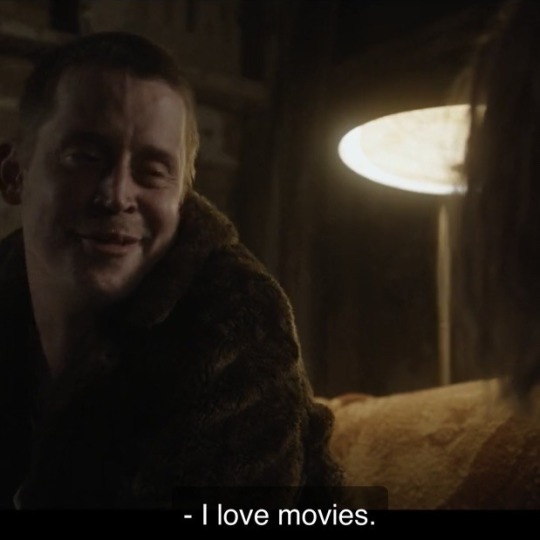
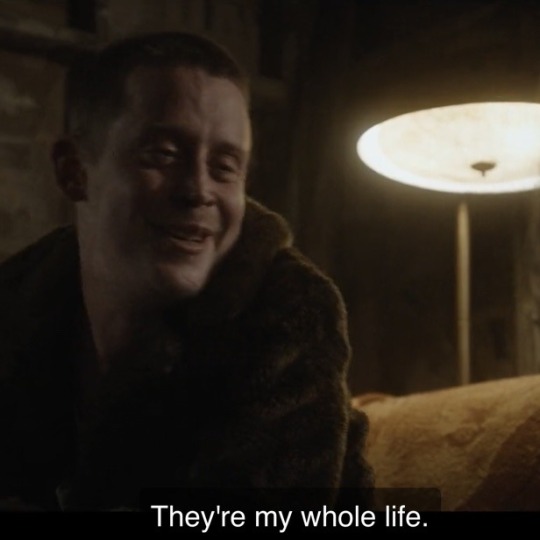
7 notes
·
View notes
Text
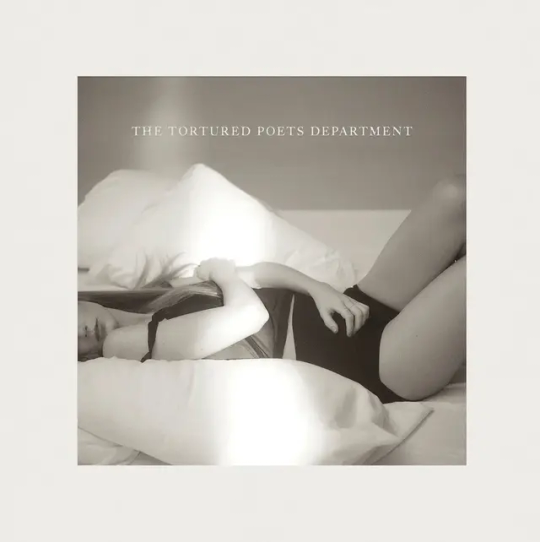
From Apple Music: "In the 18 months after Taylor Swift released Midnights, it often felt as though the universe had fully opened up to her. The Eras Tour was breaking records and blowing past the billion-dollar mark; its attendant concert film became the highest-grossing of all time. She generated interest and commerce and headlines everywhere she stepped foot, from tour stops to the tunnels of NFL stadiums. In 2023, she was named both TIME magazine’s Person of the Year and—just as iconic, tbh—Apple Music’s Artist of the Year.
But do songs about that level of success speak to you? As the news broke that her highly private six-year relationship to Joe Alwyn had ended, Swifties started Swiftie-ing, quickly recirculating a clip on social media of Swift a few weeks earlier, onstage during an early Eras show, in tears as she sang “champagne problems”—a song she and Alwyn had written together. It was a reminder that, despite the superhero-like aura she now radiates, Swift, at her peak, still hurts like the rest of us. What sets her apart is her ability to sublimate that pain into pop. When she announced her 11th studio album in early 2024—while accepting another Grammy, as one does—we probably shouldn’t have been surprised.
“I needed to make it,” she’d say of THE TORTURED POETS DEPARTMENT a few weeks later, to a crowd of—[rubs eyes]—96,000 in Melbourne, Australia. “I’ve never had an album where I’ve needed songwriting more than I needed it on TORTURED POETS.” Working again with trusted collaborators Jack Antonoff and Aaron Dessner, she returns to the soft, comfortable, bed-like sonics of Midnights. But the stakes feel noticeably higher here: This isn’t so much a breakup album as it is a deep-sea exploration of everything Swift has been feeling, a plunge through emotional debris.
On “But Daddy I Love Him”—over strings and guitar that faintly recall her country roots—she lashes out at the crush of scrutiny and expectation she’s been subject to from the start. Naturally, catharsis comes after the chorus: “I’ll tell you something right now,” she sings. “I’d rather burn my whole life down than listen to one more second of all this bitching and moaning.” On “Florida!!!” she and Florence + the Machine team up for a pulpy escape fantasy wherein they Thelma and Louise their way down to the Sunshine State in hopes of starting over with new lives and identities: “Love left me like this,” they sing. “And I don’t want to exist.”
At turns hilarious and heartbreaking, TTPD is a study in extremes, Swift leaning into heightened emotions with heightened, hyperbolic, ALL-CAPS language and imagery—how we think when we’re drunk on love or flattened by its sudden disappearance. Note the dark humour she weaves through the Post Malone-enriched opener “Fortnight” (“Your wife waters flowers/I wanna kill her”). Or the thrilling self-deprecation of “Down Bad”, a foray into science fiction wherein Swift likens the warmth of a relationship to being abducted by love-bombing extraterrestrials—only to be left “naked and alone, in a field in my same old town.”
But this remains her most candid and unsparing work to date: As a listener, you frequently get the feeling that you’ve stumbled across emails she’d written but never sent, or into conversations you were never meant to hear. There’s a density and a specificity and a ferocity to her lyrical work here that makes 2012’s “All Too Well” feel sorta light by comparison. If you’re the kind of Swiftie who likes to live in the details, well, this one might be your Super Bowl. “You swore that you loved me, but where were the clues?” she asks on the devastating “So Long, London”, a high point. “I died on the altar waiting for the proof.” Alone at a piano on the haunting “loml”, she flips the script on someone who’d told her she was the love of their life, by telling them that they were the loss of hers: “I’ll still see it until I die.”
The story, as you likely know, doesn’t end there. We get a glimpse of new beginnings in “The Alchemy” (“This happens once every few lifetimes/These chemicals hit me like white wine”) and something like triumph in the montage-ready synths of “I Can Do It With a Broken Heart”, when Swift, shattered on the floor, “as the crowd was chanting, ‘More!’,” still finds the strength to deliver: “’Cause I’m a real tough kid and I can handle my shit.”
But we also get a sense of acceptance, of new-found perspective. On “Clara Bow”—named after a 1920s movie star who was able to survive the jump from silent film to sound—Swift reflects on the journey of a small-town girl made good, sung from the vantage of an industry obsessed with the next big thing. She zooms out and out and out until, in the album’s closing seconds, she’s singing about herself in the third person, in past tense, acknowledging that nothing is forever. “You look like Taylor Swift in this light, we’re loving it,” she sings. “You’ve got edge she never did/The future’s bright, dazzling.”
I'm not restricting or limiting her artistic potential or anything but I really think Taylor Swift's niche in genre is dream, folk or synth-pop. That ethereal soundscape goes well with her small-ranged voice and her lyrical style works best when it's telling stories about stuff that isn't even necessarily about her, but about someone or something.
It's her niche. Where she sounds her best. When she's at her best.
I like the fact that in this album she's not worried about singles because most of these songs are too long for radio play unless they have to cut them down, and we all know how she feels about that. It's an album meant to be an album. It's a proper concept album. She doesn't need to worry about singles anyway. She'll sell regardless.
It sounds bloody fantastic in lossless 24-bit 48kHz ALAC/FLAC.
She's done it again. Created a musical masterpiece.
Like we'd expect anything less from Taylor Swift.
"As a listener, you frequently get the feeling that you’ve stumbled across emails she’d written but never sent, or into conversations you were never meant to hear. There’s a density and a specificity and a ferocity to her lyrical work here that makes 2012’s “All Too Well” feel sorta light by comparison." Yeah, you do with every great songwriter. The difference is great songwriters that are actually the musical artists of what you're listening to don't often exist in the pop industry.
Taylor Swift takes up space in pop music because she demands it. Most people would scoff at it. Even call it egoic. I highly respect it because she brings to pop music the point of the music. Art - not just entertainment. There's a phrase I use: Art is meant for expression, not impression. And she provides and delivers both seamlessly within each other. That's why the space she demands, she deserves. Not just any pop artist can do that or have that mark in the pop industry because most of them don't even write their own fucking music.
So if you feel like you shouldn't be present when listening - you feel put out or uncomfortable in any way - that's how you know you're listening to a true and great songwriter because they all DO THIS.
#taylor swift#the tortured poets department#she is a poet#a visual songwriter through and through#a clairvoyant#stevie nicks would be proud#as would joni mitchell#apple music
3 notes
·
View notes
Text
2023 Oscars Trivia (Post-Ceremony)
Like last year, the Best Picture winner had a big night: Oppenheimer won 7 awards, as did Everything Everywhere All at Once. This post will use the word "consecutive" a lot.
This is the second consecutive year that a film won 7+ awards. The last time that happened was 1996-1998 (The English Patient; Titanic; Shakespeare in Love).
This is the second consecutive year that a film has won multiple acting awards. The last time that happened was 2003 & 2004 (Mystic River and Million Dollar Baby). The only other time consecutive Best Picture winners won multiple acting awards was 1953 & 1954 (From Here to Eternity and On the Waterfront).
Four consecutive Best Picture winners have won for acting, the longest streak since 1998-2002.
Oppenheimer is the first film since The Artist (2011) to win both Best Picture and Best Actor.
Oppenheimer is the 6th film to win both male acting awards and the first since Dallas Buyers Club (2013). The last Best Picture winner to win both male acting awards was Ben-Hur (1959).
Three of this year's acting winners have starred in superhero films: Emma Stone was Gwen Stacy in The Amazing Spider-Man, Cillian Murphy was Scarecrow in the Nolan Batman movies, and Robert Downey Jr., of course, is Iron Man.
Oppenheimer is the highest-grossing Best Picture winner since The Lord of the Rings: The Return of the King (2003).
Three Best Picture nominees went home empty-handed: Killers of the Flower Moon, Maestro, and Past Lives.
Killers of the Flower Moon is the third Scorsese film to receive 10 nominations and 0 awards (Gangs of New York, 2002; The Irishman, 2019).
Diane Warren continues to hold the record for most Original Song nominations without a win (15) and continues to be the woman with the most Oscar nominations without a win. She has lost six in a row.
Bradley Cooper is now tied for 8th place among individuals with the most nominations without a win (12).
Despite several nominations -- Martin Scorsese and Robert De Niro for Killers of the Flower Moon, and Matteo Garrone's Io Capitano for International Feature -- none of the men behind Goncharov took home an Oscar.
This is the 8th consecutive year with at least one black winner, extending the record.
Da'Vine Joy Randolph is the 10th black woman to win Best Supporting Actress -- the first acting category to hit double digits.
This is the fourth consecutive year with at least one non-white acting winner (Michelle Yeoh and Ke Huy Quan in 2022; Will Smith and Ariana DeBose in 2021; Daniel Kaluuya and Youn Yuh-jung in 2020) -- the longest streak ever.
Cord Jefferson is the 8th black screenplay winner, and this is the 6th such win (all but one were for Adapted Screenplay).
This is the fourth year in a row that a woman has won a screenplay award (Justine Triet for Anatomy of a Fall, Sarah Polley for Women Talking, Sian Heder for CODA, Emerald Fennell for Promising Young Woman) -- the longest streak ever.
Both screenplay wins were the only wins for their films, and both wins included the film's director. This is the 9th year in a row that a director has won for Original Screenplay, and the 6th year in a row for Adapted Screenplay; both are records.
Kiyoko Shibuya is the third woman and first woman of color to win for Visual Effects (Suzanne M. Benson for Aliens, 1986; Sara Bennett for Ex Machina, 2015).
Neil Corbould, nominated for The Creator, Mission: Impossible - Dead Reckoning Part I, and Napoleon, is the first person to lose for Visual Effects three times in one year (don't worry, he's already won twice).
Billie Eilish (22) and Finneas O'Connell (26) are the youngest people to win multiple Oscars ("No Time to Die" from No Time to Die, 2021).
At 35, Emma Stone is the 8th-youngest person and woman to win two acting Oscars, and the 7th-youngest to win Best Actress twice.
Cillian Murphy is the first Irish Best Actor winner.
Christopher Nolan was the only individual to win multiple awards (Picture and Director).
Christopher Nolan is the first white man to win Best Director solo since Damien Chazelle (La La Land, 2016). Including Daniel Scheinert for Everything Everywhere All at Once, this is the first time since 2010 & 2011 that white men have won Best Director in consecutive years (Tom Hooper for The King's Speech; Michel Hazanavicius for The Artist), and that consecutive Best Picture winners have had a white male director.
The Zone of Interest is the first film from the United Kingdom to win Best International Feature. It is the fifth Best Picture nominee in six years to win in this category, and the third in a row (Drive My Car and All Quiet on the Western Front).
20 Days in Mariupol is the first Ukrainian film to win an Oscar.
Takashi Yamazaki is the second director to win for Visual Effects (Stanley Kubrick for 2001: A Space Odyssey, 1968).
Godzilla Minus One is the first Godzilla film to win an Oscar and the first Japanese film to win for Visual Effects (Tora! Tora! Tora!, 1970, was an American-Japanese co-production). Previously, the only Asian Visual Effects winner was Taiwanese-American Doug Chiang (Death Becomes Her, 1992).
This is the second time that only one non-Best Picture nominee won in a main category (i.e. excluding Animated, Documentary, International, shorts). The other time was 1997 (Best Makeup for Men in Black); notably, that was the year Titanic tied the record for most awards.
This is the second year in a row that the most-nominated film a) won Best Picture and b) won the most awards of the night. The last time consecutive most-nominated films won the most awards was 2016 & 2017 (La La Land and The Shape of Water); the last time consecutive most-nominated films won Best Picture was 2009 & 2010 (The Hurt Locker and The King's Speech).
This is the second consecutive year that multiple films have won 4+ awards (Everything Everywhere All at Once and All Quiet on the Western Front). The last year with multiple 4+ winners was 2014 (Birdman and The Grand Budapest Hotel), and the last time it happened consecutively was 2010 & 2011 (The King's Speech and Inception; The Artist and Hugo).
This is the third consecutive year that three or fewer films have won multiple awards, the longest streak since 1956-1960.
Two couples shared wins: Christopher Nolan & Emma Thomas for Best Picture, and Justine Triet & Arthur Harari for Original Screenplay.
Christopher Nolan & Emma Thomas are the third couple to share a Best Picture win (Richard D. Zanuck & Lili Fini Zanuck, Driving Miss Daisy, 1989; Peter Jackson & Fran Walsh, The Lord of the Rings: The Return of the King, 2003).
Justine Triet & Arthur Harari are the third couple to win for Original Screenplay (Muriel & Sydney Box, The Seventh Veil, 1946; Earl W. & Pamela Wallace, Witness, 1985).
Toshio Suzuki is the second Asian winner of Animated Feature, and Hayao Miyazaki is the first Asian to win twice (Spirited Away, 2002).
The Boy and the Heron and Spirited Away are the only two hand-drawn animated films and the only two non-English-language films to win Animated Feature.
Pixar has lost Animated Feature three years in a row, its longest drought ever.
Holly Waddington is the first person since Mark Bridges (The Artist, 2011) to win Best Costume Design for her first nomination.
#oscars project 2023#oscars trivia#apparently i'm into streaks this year#and the award for most consecutive uses of consecutive goes to...
2 notes
·
View notes
Text
A Cultural Studies Analysis on Invincible
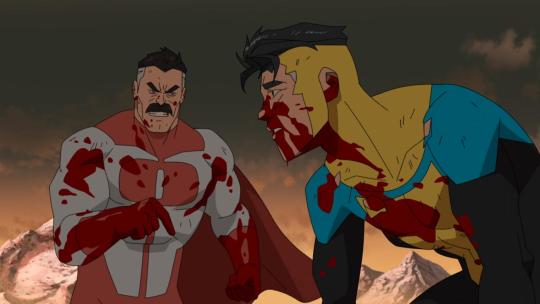
In my video essay, I looked at Prime Video’s Invincible (2021-) and analyzed the various themes of identity that appear throughout the show, all revolving around the main protagonist of the series, 17-year-old Mark Grayson. I pair this up with various Critical Studies sources that cover reception theory and critical race theory and intersect some of the arguments made to highlight cases of othering within the show. As mentioned, the analysis is centered around Mark’s identity as a superhero, as a young adult, and as a half-Human and half-Viltrumite, as he develops his powers and ‘learns the ropes’ of the superhero job.
In regards to his identity as a superhero, I look at how Mark/Invincible is othered in the scope of superhero media through how his origin story diverts the theme of loss and redemption. Stuart Hall’s reception theory delves into the coding and decoding of messages in certain texts.[1] I pair his argument on how instances of codes can be made to appear as though they haven’t been constructed anymore because of how popular or generally used they’ve become in certain communities with Max Horkheimer’s and Theodor W. Adorno’s argument that in the production of mass culture, more specifically in media, the audience can more or less easily predict the structures and narrative elements of the piece.[2] Superhero media is one of the highest-grossing genres currently across both television and film, meaning that audiences have grown accustomed to the stories of the genre. A result of that is a discourse that mirrors the arguments made by Hall, Horkheimer, and Adorno. Fingers have been pointed specifically at large corporations such as Disney, who mass-produce superheroes in a manner that utilizes the same molds and structures repetitively and has greatly influenced superhero media across the Western production world especially. Attempts at creating unique texts in this genre have been made, resulting in the subgenre of ‘capepunk’, a genre that aims to tell more grounded and realistic superhero worlds and critique mainstream superhero media while making use of adult themes and explicit content. This genre has been popularized in recent years thanks to shows like The Boys (2019-) and Invincible, however, arguments have been made that these types of media eventually end up becoming the media that they’re trying to subvert and critique. I acknowledge that Invincible certainly does appear similar to the media it makes critiques on. It’s not convoluted or unique and fits the descriptions of media that Hall, Horkheimer, and Adorno describe. I do argue that it presents several cases in which it can break off from the mold and create new and refreshing cases that are coded.
The instance I look at in-depth is how Mark continuously faces loss and how this plays into his identity as a superhero. Comparing his journey to a common superhero origin story that is presented in most popular instances of the genre, Mark ticks most of the boxes, but one thing he manages to keep doing is losing. And it ends there. He doesn’t have some kind of redemption or resolution within the episode of the season or the next season, Mark will lose a fight and the episode will end there. We move on to whatever conflict he has to face in the following episode. This is an important aspect of Mark’s origin story, as it not only grounds his story but also reflects his ideology and how it changes. As he physically endures countless beatings and is left unconscious multiple times, his belief in what it means to be a superhero is challenged and broken each time. This repeated loss, however, is interpreted negatively in large circles in online forums who have expressed their annoyance at Invincible’s inability to win fights, or even whether he should be able to call himself ‘Invincible’, causing Mark to be othered from his superhero counterparts across the genre. Mark’s case is seen as unique, in some respects, an early failure in the image of a superhero. I believe this perspective is evidence of being unable to decode the message of the creators on the constant battle that Mark endures in his belief system, which is also symbolized by the title sequence of the show. The “INVINCIBLE” title card is splattered with more blood each episode of the first season, mirroring the repeated damage that Mark endures, while in the second season, the title card is completely covered in blood and begins to crack. The cracks grow in each episode, revealing a new layer underneath.
I bring up how this is made more clear in the second season, more specifically in the mid-finale, and present clips and narration on a case where Mark’s ideology takes a drastic shift. The entire premise of learning to fight with the mentality of killing the opponent creates an opportunity where Mark can go toe to toe with his opponent, yet this ideology conflicts with his identity as a superhero, and this conflict causes him to ultimately lose the fight. This ideology is not only tied into Mark’s identity as a superhero, as additionally, it is also his racial identity. As mentioned in the video, the Viltrumite alien race is coded with the definitions of colonialism, imperialism, and racism that Robert Stam and Louise Spence present.[3] They use their superhuman abilities to kill and conquer different alien races across the galaxy. Mark, the only Viltrumite in the entire galaxy that opposes this idea and seeks to protect his Earth, is othered by other Viltrumites. Interestingly enough, physically and biologically, Mark is a Viltrumite, but they are completely indistinguishable from humans apart from the supernatural abilities they possess and their prolonged life spans. Mark seeks to other himself as much as possible from the Viltrumites. This is symbolized by his superhero outfit that sports a color scheme of yellow, blue, and black and has a unique design, which is completely different from the white and grey uniforms that Viltrumites wear, depicting the uniformity of military garments. Mark’s father, Omni-Man, wears a unique combination of the base of the Viltrumite uniform with a human superhero design on it, symbolizing how he is caught in between these two worlds which is explored more in the second season of the show.
Mark steers away from conforming to Viltrumite ideologies and fights and prepares to save or liberate Earth (and potentially the galaxy) from Viltrumite's influence. I mention how his Asian identity fits the mold of Stam and Spence’s argument on naive integrationism, as the creators substitute an Asian character into a role dominantly played by white characters and never truly explore his Asian identity, however, I argue that Mark’s role as an active opposer of the coded ideologies Viltrumites embody, and therefore doesn’t play Stam and Spence’s argument.[4]
Invincible creates a unique plot in a medium that is saturated with the elements that the show subverts. Mark embodies roles that while othering him from his counterparts both beyond and within the scope of the show, present the case for an unlikely superhero who may be able to surpass those around him. Especially when he’s able to win his first major fight.
[1]Stuart Hall, “Encoding, Decoding,” 551
[2]Max Horkheimer, Theodor W. Adorno, “The Culture Industry: Enlightenment as Mass Deception,” 98-99
[3]Robert Stam, Louise Spence, “Colonialism, Racism and Representation: An Introduction,” 753
[4] Stam, Spence, “Colonialism, Racism and Representation: An Introduction,” 757
@theuncannyprofessoro
6 notes
·
View notes
Text
Happy Birthday 🎂 🥳 🎉 🎈 🎁 🎊 To A Very Reowned English Actor 🇬🇧, Known for his versatility and physical transformations for his roles, he has been a leading man in films of several genres.
Born On January 30th, 1974
Born in Wales to English parents, He had his breakthrough role at age 13 in Steven Spielberg's 1987 war film Empire of the Sun. After more than a decade of performing in leading and supporting roles in films, he gained wider recognition for his portrayals of serial killer Patrick Bateman in the black comedy American Psycho (2000) and the titular role in the psychological thriller The Machinist (2004).
In 2005, He Played Most Important Role Of His Career
The Titular Superhero Of DC COMICS Based On Bob Kane's & Bill Fingers Comicbook
Batman in Batman Begins and again in The Dark Knight (2008) and The Dark Knight Rises (2012), garnering acclaim for his performance in the trilogy, which is one of the highest-grossing film franchises.
He has received various accolades, including an Academy Award and two Golden Globe Awards. Forbes magazine ranked him as one of the highest-paid actors in 2014.
Please Wish This Legendary Actor 🙏 A Very Happy Birthday 🎂 🥳 🎉 🎈 🎁 🎊
The 1
& Only
MR. CHRISTIAN ✝️ CHARLES PHILLIPS BALE🇬🇧🦇
HAPPY 50TH BIRTHDAY 🎂 🥳 🎉 🎈 🎁 🎊 TO YOU MR. BALE & HERE'S TO MANY MORE YEARS TO COME
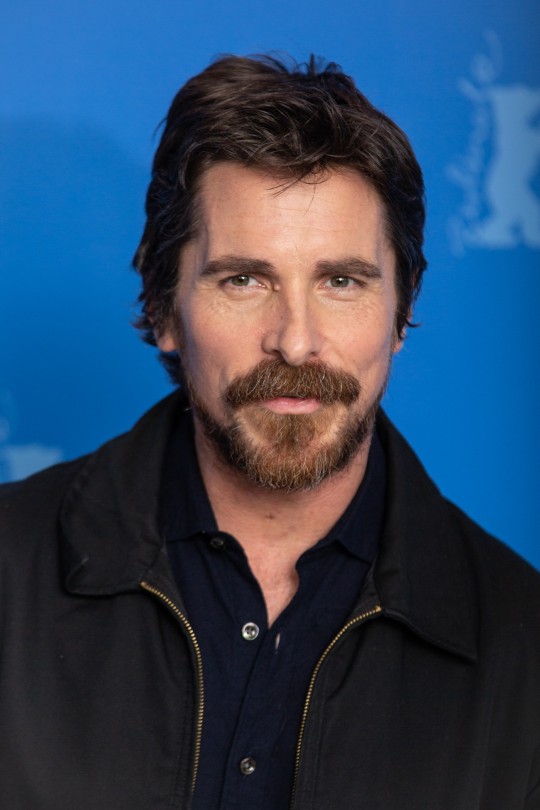
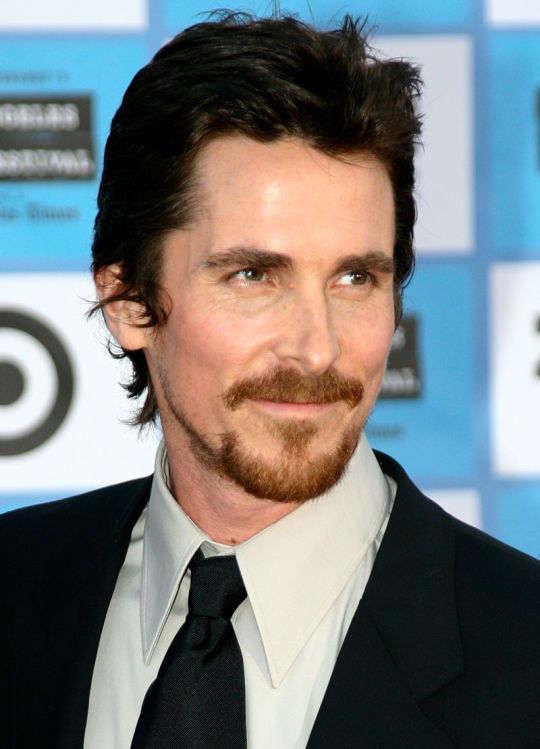
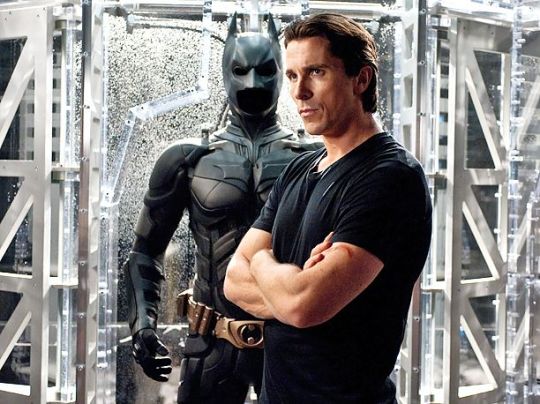

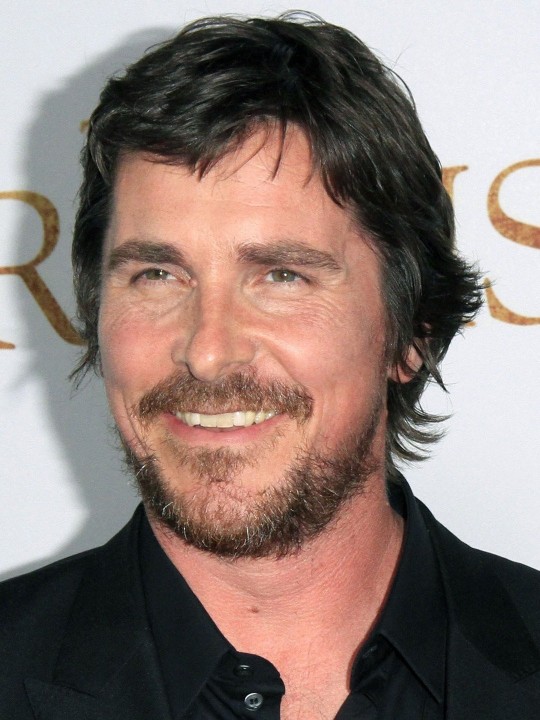
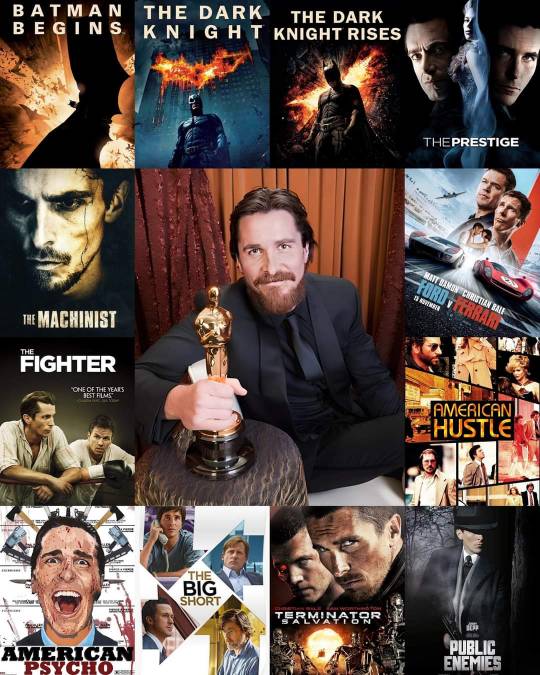
#ChristianBale #TheDarkKnight
2 notes
·
View notes
Text
How Avatar advanced CGI and harmful representation
What made Avatar (2009) so successful that it held the record of highest-grossing film for nearly a decade after its release? Director James Cameron explains," 'Avatar' is about finding our home, finding our family, finding our clan. And fighting to protect that which we found and earn our place in it. That turns out to be a more critical part of it than people realize," says Cameron. 'That's why it spoke to every culture in the world and shot to No. 1 in every market. It was dealing with a universal truth of the human condition that transcended culture.'" (Alexander)
Beyond the story, Avatar featured an unprecedented display of special effects. Specifically, motion capture and CGI were used to bring the Na'vi people to life. These groundbreaking advancements in CGI paved the way for modern superhero films to incorporate fight scenes with CGI. In addition, Avatar spurred audience interest in movies in 3-D or IMAX. This is thought to be due to CGI making the film so immersive.
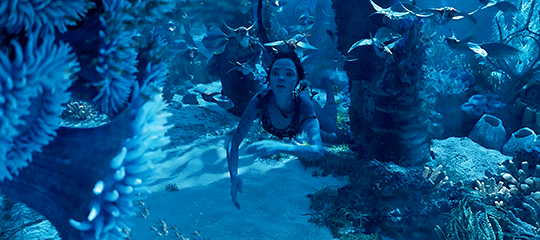
The sequel comes out this December and promises to make even more advances in special effects. Avatar (2009) was the most advanced film of the 2000s, but how does it hold up a decade later? The film's still essential to the history of special effects, and the world of Pandora is still immersive. Walt Disney World has created Pandora in Animal Kingdom, including Flights of Passage, where guests can ride a banshee. The ride is hugely popular.
IMDB summarizes Avatar (2009): "A paraplegic Marine dispatched to the moon Pandora on a unique mission becomes torn between following his orders and protecting the world he feels is his home."
It has been criticized for having a generic plot that revolves around a white man saving native people who are presented as less advanced. "In the post-Global War on Terrorism era, there are increasingly more representations of contemporary disabled veterans. These representations reflect a cultural desire to integrate and appreciate veterans while at the same time expressing larger anxiety, hate, and fear about both disabled veterans and disabled people in general." (Schalk, 403)

Photo by Richard Catabay from Unsplash
Films are often rooted in real-world social and political issues happening at that time.
Disabled people are often seen as weak or lesser, but this view conflicts with the image of a strong patriotic soldier. As medical advancements allowed more soldiers to come home disabled with traumatic brain injuries and post-traumatic stress disorder, the idea of a veteran evolved. Still, the image of a disabled person didn't.
Disabled veterans conflicted with societal expectations. This conflict created cultural anxiety. "Avatar attempts to alleviate cultural anxieties about contemporary disabled veterans by representing protagonists who exist at the top of a disability hierarchy and can therefore be more easily integrated into society." (Schalk, 407) The disability hierarchy is defined by the norms of society. The standard protagonist is a white, cisgender, straight, able-bodied man. The disability hierarchy compares people with disabilities against these traits.
The less you match that description, the lower on the hierarchy you are. "Disability hierarchy is not about disability type alone, but rather it is a complex, intersectional differential valuation of disabled people regarding who can and cannot or should and should not be accommodated and integrated into a society based on a variety of factors"(Schalk, 408) Jake Sully is the stereotypical protagonist with a disability.
Sources
Alexander, B. (2019, December 31). James Cameron predicts 'Avatar' will ultimately top 'Avengers: Endgame': 'I think it's a certainty'. usatoday.com. https://www.usatoday.com/story/entertainment/movies/2019/12/18/avatar-10th-anniversary-james-cameron-predicts-beating-avengers-endgame/2680090001/?subId1=xid:fr1576780607704hjf
IMDB. (2009, December 18). Avatar. IMDb. https://www.imdb.com/title/tt0499549/
Schalk, S. (2020). Wounded Warriors of the Future Disability Hierarchy in Avatar and Source Code. Journal of Literature & Disability Studies, 14(4), 403-419. https://doi.org/10.3828/jlcds.2020.27
#avatar#3d cgi#blockbuster#ableism#disabledveteran#disabled characters#jake sully#social expectations#social hierarchy#generic protagonist#flight of passage#physically disabled#2009#avatar the way of water#problematicrepresentation#movies#james cameron#ableist nonsense#disabilities#ableistcharacters#disabled character of the day#wheelchair#ableist people#ableist bullshit#bad representation
35 notes
·
View notes
Text
The drama is being rehashed at a time when DC Entertainment toppers James Gunn and Peter Safran are poised to close the book on the previous regime’s superhero slate with the Dec. 20 release of “Aquaman and the Lost Kingdom.” Since Warner Bros. chiefs Pam Abdy and Mike De Luca joined the studio in June 2022, followed by Gunn and Safran’s entrance four months later, the four have been saddled with DC duds they inherited, including this year’s “The Flash” ($271 million worldwide) and “Blue Beetle” ($128 million worldwide).
Still, the “Aquaman” sequel held promise considering that the character’s first outing earned $1.15 billion worldwide, becoming the highest-grossing DC movie ever. But sources say the sequel has endured challenges outside of the Heard saga and was testing in the 60s before being recut in the summer of 2022. Despite the overhaul, the film continued to test in the 60s, prompting a new cut. “The movie is like this echo of regimes,” says one insider. “It’s the last remnant of the Snyderverse, and no one really wants to take ownership of it.” Reshoots took place right up until this year’s WGA strike in May. The on-set source disputes the idea that “Aquaman 2” is troubled, noting that the film was on time, under budget and needed only about a week of reshoots.
Like “Flash,” “Aquaman” can’t shake its lame duck trappings, with the DC universe getting overhauled under new leadership, marking Warner Bros. Discovery CEO David Zaslav’s top priority.
In fact, none of the stars cast by Zack Snyder for 2016’s “Batman v Superman: Dawn of Justice” and 2017’s “Justice League” — including Ben Affleck, Henry Cavill, Gal Gadot, Ezra Miller and Momoa — will reprise their roles in the new DC universe in character. Momoa may return, just not as Aquaman. Sources say the actor has engaged in talks to play Lobo, either in the 2025 reboot “Superman: Legacy,” written and directed by Gunn, or in a standalone film. In a confusing twist, Viola Davis, who played Amanda Waller in both of the recent “Suicide Squad” movies, will remain as that character in the Gunn-Safran DC universe in next year’s Max series “Waller” and possibly in the new “Superman” tentpole. Another outlier is Gunn’s Max series “Peacemaker,” which will be back for a second season with John Cena in the lead.
Meanwhile, there has been some confusion on the series front about who is the ultimate gatekeeper. Unlike the Marvel-Disney relationship in which Marvel controls the creative process and Disney+ merely releases the content, Max is creatively involved with the DC slate. Gunn and Safran don’t enjoy the same autonomy as Marvel’s Kevin Feige. (A Max source says the collaboration between the DC team and Max executives Sarah Aubrey and Casey Bloys has been seamless, including on the upcoming series “The Penguin,” which was forced to shut down production after the WGA strike began but is expected resume shooting as soon as the SAG-AFTRA strike ends.)
Regardless, some on the lot are convinced that another company, most likely Universal, will buy Warner Bros. within two years, making recent DC subplots and upheavals feel quaint.
“The bottom line is they need to get DC to work whether Zaslav owns it, whether Brian Roberts owns it, whether somebody else owns it,” says LightShed’s Rich Greenfield, a Wall Street analyst and venture capitalist.
3 notes
·
View notes
Photo
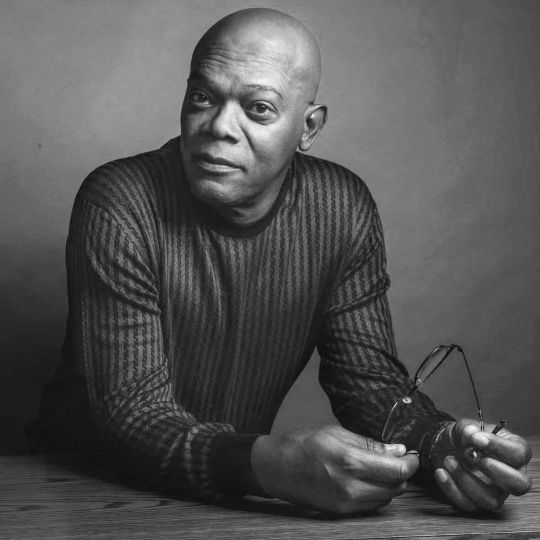
Today In History Samual L. Jackson is an amazing artist and the hardest working Hollywood actor in the business. He was born on December 21, 1948, in Washington, D.C. Jackson is especially known for his work in action blockbusters and his films with directors Spike Lee (Do The Right Thing, and Jungle Fever) and Quentin Tarantino (Pulp Fiction and Django Unchained). He appeared in countless other films, including ‘Coming To America,’ ‘School Daze,’ ‘Mo’ Better Blues,’ ‘Juice,’ ‘A Time To Kill,’ ‘Eve’s Bayou,’ ‘True Romance,’ ‘Jurassic Park,’ 'Star Wars,’ ‘Die Hard 3,’ and, Marvel superhero franchises. In 2011, he was named the highest-grossing actor of all time with more than $7.2 billion in wealth. Not to mention Samuel Jackson is currently on Broadway in August Wilson’s Pulitzer Prize-Winning Play ‘The Piano Lesson’ that is getting high praise with fans and critics. CARTER™️ Magazine carter-mag.com #wherehistoryandhiphopmeet #historyandhiphop365 #cartermagazine #carter #samuelljackson #blackhistorymonth #blackhistory #history #staywoke https://www.instagram.com/p/CmbgBl5r7Mm/?igshid=NGJjMDIxMWI=
#wherehistoryandhiphopmeet#historyandhiphop365#cartermagazine#carter#samuelljackson#blackhistorymonth#blackhistory#history#staywoke
24 notes
·
View notes
Text
On this day...
in 1994, The Mask premiered. It was part of the 'Year of Jim Carrey’ along with Dumb & Dumber and Ace Ventura: Pet Detective. The film ushered in a new era of cgi effects for which it received an an Academy Award nomination. It became the second-highest grossing superhero movie up to that time, behind Batman (1989). In terms of world wide gross compared to budget, the film became the most-profitable comic book film of all time, and remained so until Joker (2019).
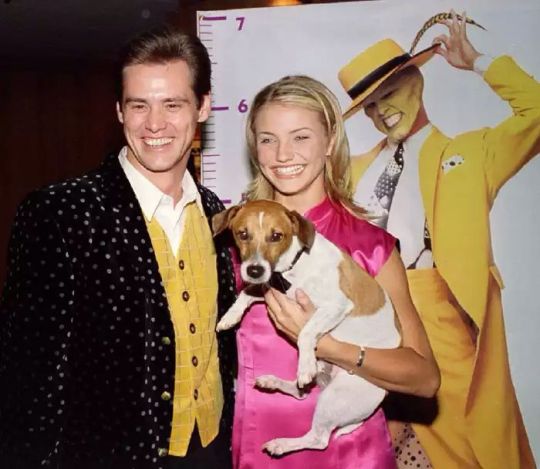
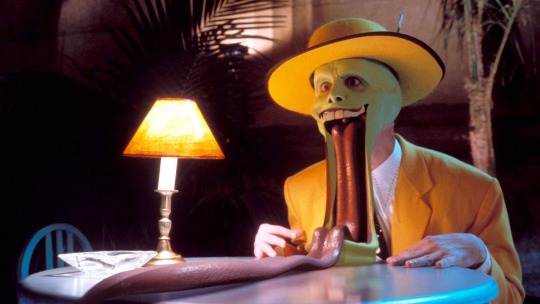


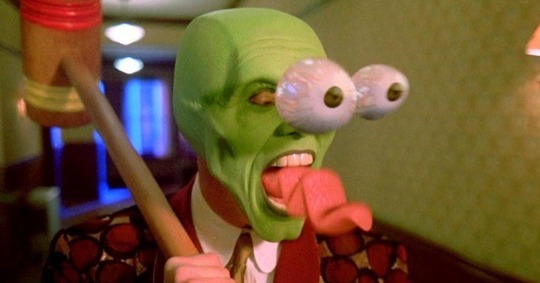
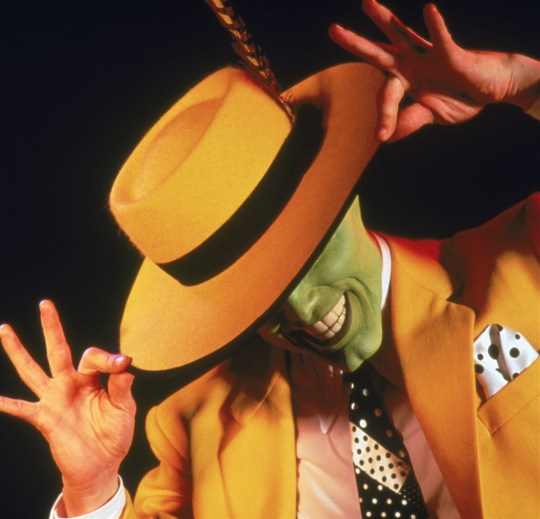
23 notes
·
View notes
Text
'Barbie and Oppenheimer's July 21 release date fueled heated debates online about which would win the box office, and while one movie out-grossed the other, they're both champions given all the records they collectively achieved. The two movies couldn't be any more different, as one is a comedy about a toy doll and has a color pallet that's 50 shades of pink, and the other is a bleak biopic about the inventor of the atomic bomb. Both come from visionary directors, too. Oppenheimer is by Christopher Nolan, who makes movies on an epic scale and pushes the boundaries of cinema, and Barbie is directed by profound filmmaker Greta Gerwig.
Despite the debates about which would do better during their opening weekend, viewers embraced the phenomena of "Barbenheimer," and many went to see both movies on the same day. In a plot twist as great as any of Nolan's, the two movies seemingly helped each other become more successful instead of stealing the other's audiences. Not only was it perfect counterprogramming, but viewers who wouldn't ordinarily watch Barbie embraced the film, and vice versa. As a result, "Barbenheimer" is being hailed as the weekend that saved cinema, with Barbie and Oppenheimer both opening big at the box office, and it's led to a number of records being set and/or broken.
17. Oppenheimer Is Christopher Nolan's Best Opening For A Non-Batman Movie
Einstein and Oppenheimer talking by a lake in Oppenheimer
Oppenheimer had one of Christopher Nolan's biggest box office openings. The biopic had an opening domestic gross of $80.5 million and a debut worldwide gross of $174.2 million, and both numbers are higher than the respective grosses of Nolan's other films outside his Batman movies. Even then, Oppenheimer made more than Batman Begins did in its opening weekend, which is even more impressive given that Oppenheimer is three hours long.
16. Barbie Has The Best Opening Weekend Of 2023
Barbie is rated PG-13, which is surprising for a movie based on children's toys. However, despite this, the movie still managed to make much more than The Super Mario Bros. Movie did in its opening weekend. Barbie grossed $155 million domestically and $182 internationally, and both of these figures beat the animated video game movie and knocked it off the top spot of 2023.
15. Barbie Is Already Mattel's Highest-Grossing Movie Ever
Even though it is just the movie's first weekend, Barbie has already become Mattel's highest-grossing movie of all time. Granted, there might not have been much competition when it comes to movies based on the brand's toys, yet it's still a huge feat considering how quickly the record was achieved. The toy manufacturer will undoubtedly now greenlight a lot more movies based on its products.
14. Barbie Is Warner Bros.' Biggest Opening Weekend In 7 Years
Warner Bros. hasn't seen this much success in an opening weekend with any of their movies in seven years. The last Warner Bros. movie to gross more than Barbie in its opening weekend was Batman v Superman: Dawn of Justice. Even then, the 2016 release was a huge event movie, and when it quickly earned a mixed reception, the film suffered a huge dip in its second weekend. Given the positive reception of Barbie, the 2023 film will undoubtedly outperform the superhero movie.
13. Barbenheimer Is The Fourth-Best Opening Weekend In History
Together, Barbie and Oppenheimer had a total domestic opening weekend gross of $235 million at the box office. That's the fourth-highest domestic opening weekend ever. "Barbenheimer" weekend sits behind the opening weekends of Avengers: Infinity War, Avengers: Endgame, and Star Wars: The Force Awakens. It might have required two films, but the fact that two films grossed a combined $235 million domestically on the same weekend is arguably even more impressive.
12. Barbie Is The Biggest Opening Weekend Ever For A Woman Director
Greta Gerwig has made history with Barbie, as the movie has become the biggest opening weekend for a woman director, and that likely won't be beaten any time soon. The previous record holder was Anna Boden, who co-directed Captain Marvel with Ryan Fleck. The superhero movie grossed $153.4 million domestically in its opening weekend, and Barbie only just barely beat it.
11. Oppenheimer Is The Second-Biggest Opening Of All Time For A Biopic
Oppenheimer had the second-biggest opening for a biopic, sitting behind American Sniper, which grossed $89.2 million worldwide in its debut. However, Oppenheimer could still potentially have a much better box office performance overall, as there's a lot more interest in Oppenheimer internationally than there was with American Sniper.
10. Barbie Is Greta Gerwig's Biggest Movie Ever
It wasn't remotely hard for Barbie to surpass the previous Great Gerwig movies at the box office, but it's still an impressive feat. Gerwig directed Lady Bird, which took in a total of $79 million worldwide, and Little Women, which grossed $218 million worldwide during its entire run. Barbie has grossed more than both of those two movies combined, and the movie did so within its opening weekend alone.
9. Barbie Is Margot Robbie's Biggest Opening Weekend Ever
Margot Robbie is a huge movie star who has led a ton of blockbuster movies, including Suicide Squad and Once Upon a Time in Hollywood. However, Barbie easily delivered the biggest opening weekend the actor has ever had, beating Suicide Squad's $133.7 million. The actor needed this, as Barbie follows Margot Robbie's two 2023 box office bombs, Babylon and Amsterdam.
8. Barbie Is Ryan Gosling's Biggest Opening Weekend Ever
Not only did Barbie give Margot Robbie her biggest opening weekend ever, but it's Ryan Gosling's, too. Gosling's Ken is a scene-stealer in Barbie, and the box office performance is just as much of a win for him as it is for Robbie. While Gosling is an A-list star, he has surprisingly never had a huge box office hit, as his previous biggest opening weekend was $32.8 million for Blade Runner 2049.
7. Barbie Is The Biggest Opening Weekend For A Movie Based On A Toy
Barbie beat Transformers: Dark of the Moon by a landslide to have the biggest worldwide opening weekend for a movie based on a toy. The Transformers sequel took in $115.9 million worldwide in its debut, losing to Barbie by $50 million. If this is a sign of things to come, based on the Transformers movies' box office grosses, Barbie will easily pass the billion-dollar mark before it's done.
6. Barbie Is The Largest Non‐Sequel, Non‐Remake Movie Released In July
Though Barbie is an IP-driven film, its success isn't based on any previous movie, and that has led to another huge record. July is always a huge month for blockbuster movies given that it's part of the summer movie season, but Barbie had the biggest worldwide opening of any non-sequel and non-remake released in the month. The animated feature The Secret Life of Pets previously held the record, as opened with $104.4 million in 2016, but Barbie beat that by over $50 million.
5. Oppenheimer Is The Biggest IMAX Opening For Christopher Nolan
Though Christopher Nolan has broken three IMAX cameras, the filmmaker has always championed the format and believes that IMAX screens are the only way to watch his films. The director even worked with IMAX to develop a black-and-white IMAX camera for Oppenheimer, so it must be gratifying for the director to know that the 2023 movie gave him his biggest IMAX opening ever. The total sales of IMAX tickets for Oppenheimer over the weekend was $21.1 million, accounting for more than a quarter of its worldwide gross.
4. Barbie Is Warner Bros.' Biggest Opening Weekend For A Non-Sequel/Non-DC Movie
Barbie gave Warner Bros. its biggest opening weekend in seven years — since the release of Batman v Superman: Dawn of Justice — but without taking into account sequels or DC movies, the 2023 film had the studio's highest opening ever. Warner Bros. has never seen this much cash flow before, not even with Harry Potter and the Sorcerer's Stone. The previous record holder was 2017's It, which debut with $123.4 million worldwide, but that was dethroned by Barbie.
3. Oppenheimer Is The Biggest Opening For An R-Rated Movie Since Joker
Joker had the biggest opening weekend ever for an R-rated movie, grossing $96.2 million worldwide. Nevertheless, there have been some noteworthy R-rated movies since then that had lower opening weekends than Oppenheimer, such as Bad Boys for Life and John Wick: Chapter 4. This is even more impressive given that not only does Oppenheimer have a limited audience due to its R rating, but it's also three hours long, partly presented in black and white, and tackles sensitive subject matter.
2. Barbie Has Already Surpassed The Lifetime Grosses Of Several Female-Led Movies
Barbie's opening-weekend box office gross is already much bigger than the lifetime grosses of many recent female-led movies. The 2018 spinoff Ocean's 8, which is part of a bankable franchise, had a total worldwide gross of $297.7 million, and Greta Gerwig's own Little Women grossed $218.8 million. Even Birds of Prey, which is both led by Margot Robbie and part of Warner Bros.'s DCEU franchise, grossed $205.3 million. These are figures that Barbie didn't even need a full weekend to break.
1. Barbenheimer Is The First Time 2 Movies Have Opened To Over $80 Million Each
When it comes to two movies being released on the same weekend, one movie usually dominates over the other one, whether it's because one had more exposure or marketing or because one of them was negatively received. However, the joint release of Barbie and Oppenheimer is the first time ever that two movies have had domestic grosses of over $80 million in their opening weekends.'
#Barbie#Oppenheimer#Christopher Nolan#Cillian Murphy#Greta Gerwig#Margot Robbie#Ryan Gosling#Batman Begins#The Super Mario Bros Movie#Batman V Superman: Dawn of Justice#Avengers: Endgame#Avengers: Infinity War#Star Wars: The Force Awakens#Captain Marvel#Suicide Squad#Once Upon A Time In Hollywood#Babylon#Amsterdam#American Sniper#Lady Bird#Little Women#Blade Runner 2049#Transformers Dark of the Moon#The Secret Life of Pets#Joker#Bad Boys For Life#John Wick: Chapter 4#Birds of Prey
2 notes
·
View notes
Text
Aquaman II box office.
Aquaman II has now officially overtaking Ezra "groomer" Miller's The Flash to become the highest-grossing DC film released in 2023. Its easily surpassed its production budget, and sources say its on-track to make back its marketing budget as well (ie, turn a profit). It may well overtake Black Adam and Shazam to be the most financially successful DCEU film since the first Aquaman. If it overtakes Antman and the Wasp: Quantumania, it will be the third highest-grossing superhero film from ANY studio released in 2023 (it won't overtake GotG III and Across the Spiderverse).
Huh, seems like all those predictions it would be a catastrophic bomb because Amber Heard was in it were... total bullshit. No, it's not performing on the level of the first Aquaman, but its doing no worse than other superhero films in the last year (indeed, its doing better than most), and certainly not underperforming in any way that can be attributed to a specific actor. So if people were looking to this film to answer the question: "Will audiences still go see a film with Amber Heard in it?" the answer is an emphatic YES.
Let's hope directors and studios pay attention.
5 notes
·
View notes
Text
i hypothesize that the highest grossing films of this year are going to be that of mario and fnaf ( and barbie but it doesn’t really fit the point ) which , while im not necessarily opposed to it , really drills home how video game adaptations are going to be the new film standard in the next few years . superhero stuff will likely be pushed to the side for the umpteenth hour and a half long commercial for product #818372 ( which isn’t much of a negative either , but it’s just another thing that are going to limit smaller movies to 3-4 screenings a day in theaters with maaaaybe 50 seats ) . i suppose all you can do is hope and pray that they’re good or go out of fashion
#kari rambles#i say im not necessarily opposed because i care about fnaf and Mario so it is the bias talking#catch me on here doing a 180 when it’s video games i have never touched ever
4 notes
·
View notes
Text
"Avatar: The Way Of Water is set to release a full 13 years after Avatar, Cameron's fantasy sci-fi adventure drama, otherwise known as the highest-grossing movie of all time. The Marvel Cinematic Universe (MCU) was a mere two films old in 2009, not counting Sam Raimi's original Spider-Man trilogy. The latest Doctor Strange movie is the 28th MCU entry, incidentally directed by Sam Raimi, which means that no less than 26 MCU titles will have 'elapsed' between the two Avatar movies. This may sound like a random stat, but it tells quite a tale about the James Cameron legacy — and what his storytelling, myth-making and vision stand for today — in context of the superhero-dominated comic-book-franchise-laden landscape of 2022."
23 notes
·
View notes